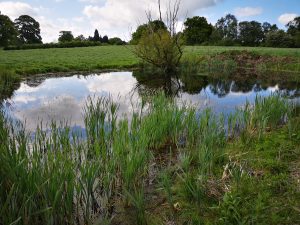Laying the Groundwork: Understanding Protected Species Surveys
In the realm of property development, protected species surveys are an indispensable part of the planning process. These surveys, which are designed to identify the presence of protected species on a site, are crucial for ensuring compliance with environmental legislation and promoting biodiversity. This article seeks to shed light on the importance of protected species surveys, why they are necessary, and how they can contribute to a smoother, more sustainable development process.
What Are Protected Species Surveys?
Protected species surveys are comprehensive evaluations carried out to determine the presence or likely absence of protected species within a particular site or development area. These surveys are typically carried out by professional ecologists who are well-versed in local, national, and international conservation laws.
The list of protected species can include bats, newts, birds, and a variety of flora and fauna that may be designated as protected under legislation. The aim is to ensure that development does not adversely impact these species and their habitats.
Why Are They Necessary?
For law firms, property agents, landowners, and property developers, conducting protected species surveys early in the development process is essential. These surveys are not just a legislative requirement, but they also provide invaluable insights that can influence the design, planning, and timing of a project.
Failing to adequately consider protected species can lead to legal complications, project delays, and reputational damage. Conversely, recognizing and planning for the presence of these species can enhance a project’s environmental credentials and contribute to local biodiversity.
The Benefits of Protected Species Surveys
Beyond regulatory compliance, protected species surveys can offer substantial benefits. They can provide the foundation for a Biodiversity Net Gain approach, demonstrating a commitment to enhancing the natural environment. This can significantly improve a project’s image, increasing its acceptance by local communities and planning authorities.
Furthermore, understanding the ecological context of a site can inform more sustainable development practices. It can help to identify opportunities for habitat creation or enhancement, contributing to broader conservation efforts and potentially offsetting the ecological impact of the development.
Engaging Expert Support
Carrying out protected species surveys requires ecological expertise and an intimate understanding of environmental legislation. Professional ecological consultants can provide this expertise, guiding developers through the survey process and helping to formulate an appropriate response to the findings.
Remember, protected species surveys are not an obstacle to development but a tool for promoting better, more sustainable practices. The result is a development that not only complies with legislation but also contributes positively to local biodiversity.
If you require guidance on protected species surveys or any other aspect of ecological planning, our team of expert consultants is available to help. We invite you to reach out for more information or to schedule a consultation.
In an era of unprecedented ecological challenges, biodiversity offsetting has emerged as a key tool for harmonising economic growth with environmental preservation. This approach seeks to balance the impact of development on nature, ensuring that any damage to one area is compensated by enhancement or protection of another. But what does biodiversity offsetting really entail,…
With growing global awareness around environmental conservation, the fulfilment of biodiversity net gain requirements has become increasingly integral in the world of property development. These requirements, designed to promote sustainable development practices, are now an essential consideration for law firms, property agents, landowners, and developers. This article explores what biodiversity net gain requirements are, why…
In the competitive world of property development, a Biodiversity Net Gain (BNG) consultant is fast becoming an indispensable asset. Providing specialist advice and insight, they guide developers, law firms, property agents, and landowners through the complexities of sustainable development. But what can a biodiversity net gain consultant do for your project? How can they ensure…
As we grapple with the global environmental crisis, the concept of biodiversity credits is gaining recognition in the world of property development. Biodiversity credits offer a practical and innovative approach to balancing the necessities of development with the urgency of ecological conservation. As law firms, property agents, landowners, and property developers navigate their projects, understanding…
For property developers and landowners, navigating environmental compliance can be a complex task. One important, yet often overlooked, component of this process is the bat survey. Conducting a bat survey is more than a due diligence task—it’s a crucial step in demonstrating compliance with environmental regulations, and therefore essential for any responsible development project or…
- « Previous
- 1
- 2


